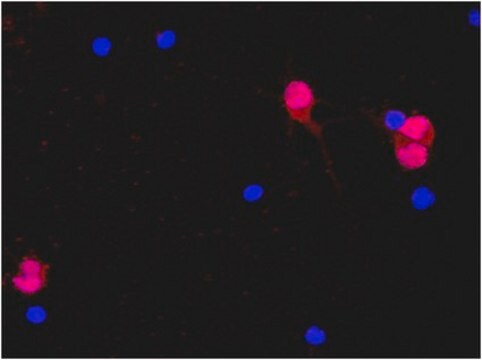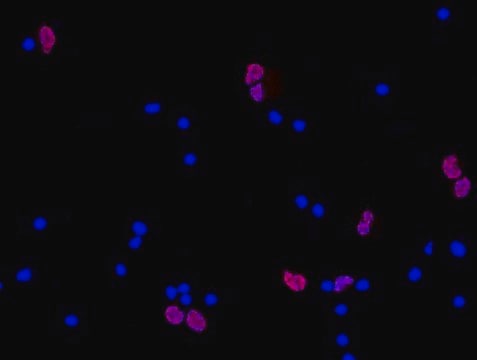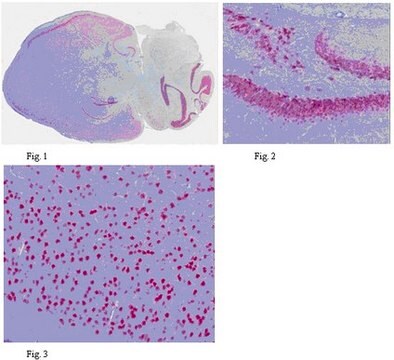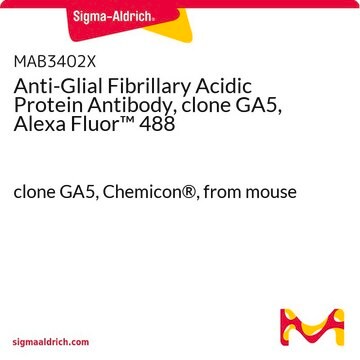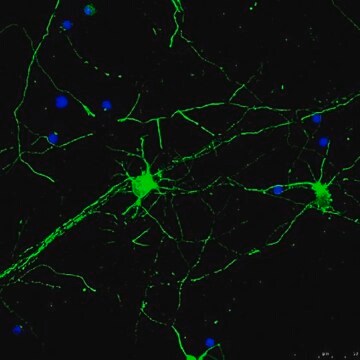MAB377X
Anti-NeuN Antibody, clone A60, Alexa Fluor™488 conjugated
clone A60, Chemicon®, from mouse
Synonym(s):
Neuron-Specific Nuclear Protein
About This Item
Recommended Products
biological source
mouse
Quality Level
conjugate
ALEXA FLUOR™ 488
antibody form
purified immunoglobulin
antibody product type
primary antibodies
clone
A60, monoclonal
species reactivity
human, rat, mouse
manufacturer/tradename
Chemicon®
technique(s)
immunohistochemistry: suitable
isotype
IgG1
shipped in
wet ice
target post-translational modification
unmodified
Gene Information
human ... RBFOX3(146713)
mouse ... Rbfox3(52897)
rat ... Rbfox3(287847)
General description
Specificity
Developmentally, immunoreactivity is first observed shortly after neurons have become postmitotic, no staining has been observed in proliferative zones.
The antibody is an excellent marker for neurons in primary cultures and in retinoic acid-stimulated P19 cells. It is also useful for identifying neurons in transplants.
Immunogen
Application
Optimal working dilutions must be determined by end user.
Neuroscience
Neuronal & Glial Markers
Physical form
Storage and Stability
Analysis Note
Brain tissue, most neuronal cell types throughout the adult nervous system
Other Notes
Legal Information
Disclaimer
Unless otherwise stated in our catalog or other company documentation accompanying the product(s), our products are intended for research use only and are not to be used for any other purpose, which includes but is not limited to, unauthorized commercial uses, in vitro diagnostic uses, ex vivo or in vivo therapeutic uses or any type of consumption or application to humans or animals.
Not finding the right product?
Try our Product Selector Tool.
Storage Class Code
12 - Non Combustible Liquids
WGK
WGK 2
Flash Point(F)
Not applicable
Flash Point(C)
Not applicable
Certificates of Analysis (COA)
Search for Certificates of Analysis (COA) by entering the products Lot/Batch Number. Lot and Batch Numbers can be found on a product’s label following the words ‘Lot’ or ‘Batch’.
Already Own This Product?
Find documentation for the products that you have recently purchased in the Document Library.
Customers Also Viewed
Our team of scientists has experience in all areas of research including Life Science, Material Science, Chemical Synthesis, Chromatography, Analytical and many others.
Contact Technical Service
